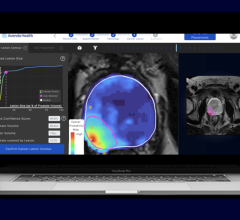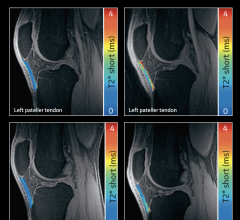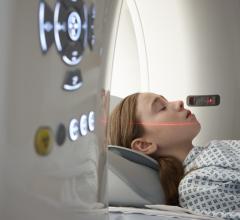
March 10, 2017 — New research published in The American Journal of Medicine reveals patient-centered educational programs can improve pre-procedural preparation quality and may reduce repeat procedures for patients undergoing colonoscopies. The study, led by researchers at Cleveland Clinic, uncovered in greater detail the impact of patient education tools on adequate preparation for screenings.
For the study, Cleveland Clinic researchers focused on monitoring outpatient colonoscopies over the course of a five-year period. Between 2010 to 2014, more than 2,500 patients with planned procedures received an educational packet by mail, a pre-procedure telephone call and an educational video with details on the importance of pre-procedural preparation. The interactive program, designed and delivered by Emmi, educated patients about their upcoming procedure. It served the purpose of reinforcing the importance of taking the appropriate preparatory steps so that the screening was optimal and repeat procedures were avoided. A unique code was linked to each patient’s medical record to document whether or not the Emmi program was viewed.
Of the 1,251 patients who viewed the educational program, analysis revealed higher rates of satisfactory preparation — 92.3 percent compared to 87.4 percent for the group that did not watch it. In addition, there was a reduction in the need for a repeat procedure within three years — only 3.3 percent had an increased need for a colonoscopy compared to 6.6 percent for those patients who did not view the video.
“Bowel preparation is crucial to the success of colonoscopies. Our study shows that patient-centered education programs with video components can help,” said Maged Rizk, M.D., a gastroenterologist and quality officer at Cleveland Clinic, who led the study.
Colonoscopies remain the primary tool for colorectal cancer screening, which is the third most common cause of cancer related deaths amongst both men and women in the United States. However, nearly 25 percent of all colonoscopies are inadequately prepared for, which may limit the efficacy of the procedure and increase the likelihood for repeat screening. This study demonstrates that engaging educational interventions serve as a means to improve the quality of procedure preparation and can reduce the need for repeat procedures in patients undergoing colonoscopy screenings. In addition, this presents a cost-effective and easy-to-implement intervention that translates to improved quality outcomes for outpatient colonoscopies.
Industry studies show pre-procedural education can have a significant impact on reducing anxiety and improving outcomes for patients undergoing a variety of procedures. Researchers at Dartmouth-Hitchcock Medical Center (DHMC) found interactive multimedia programs reduced anxiety, lowered sedation medication requirements and shortened the procedure times1. A Gallup study generated similar findings after analyzing responses from patients undergoing medical device implantation. Results showed pre-procedural education increased overall patient satisfaction, reduced problem incidence and improved quality of life2.
For more information: www.amjmed.com
References
1. Parker, S., Zipurksy, J., Ma, H., & Siegel, C. (2013, October). Randomized controlled trial demonstrates a web-based multimedia program used prior to first-time colonoscopy decreased patient anxiety, sedation requirement and procedure time while increasing knowledge. Dartmouth-Hitchcock Medical Center, Geisel School of Medicine at Dartmouth. Poster presented at the Meeting of the American College of Gastroenterology, San Diego, CA.
2. Ellrich, M. & Yu, D. (2015, May) The Benefits of Pre-Surgery Education. Retrieved from http://www.gallup.com/businessjournal/183317/benefits-pre-surgery-educa….


 July 25, 2024
July 25, 2024 








